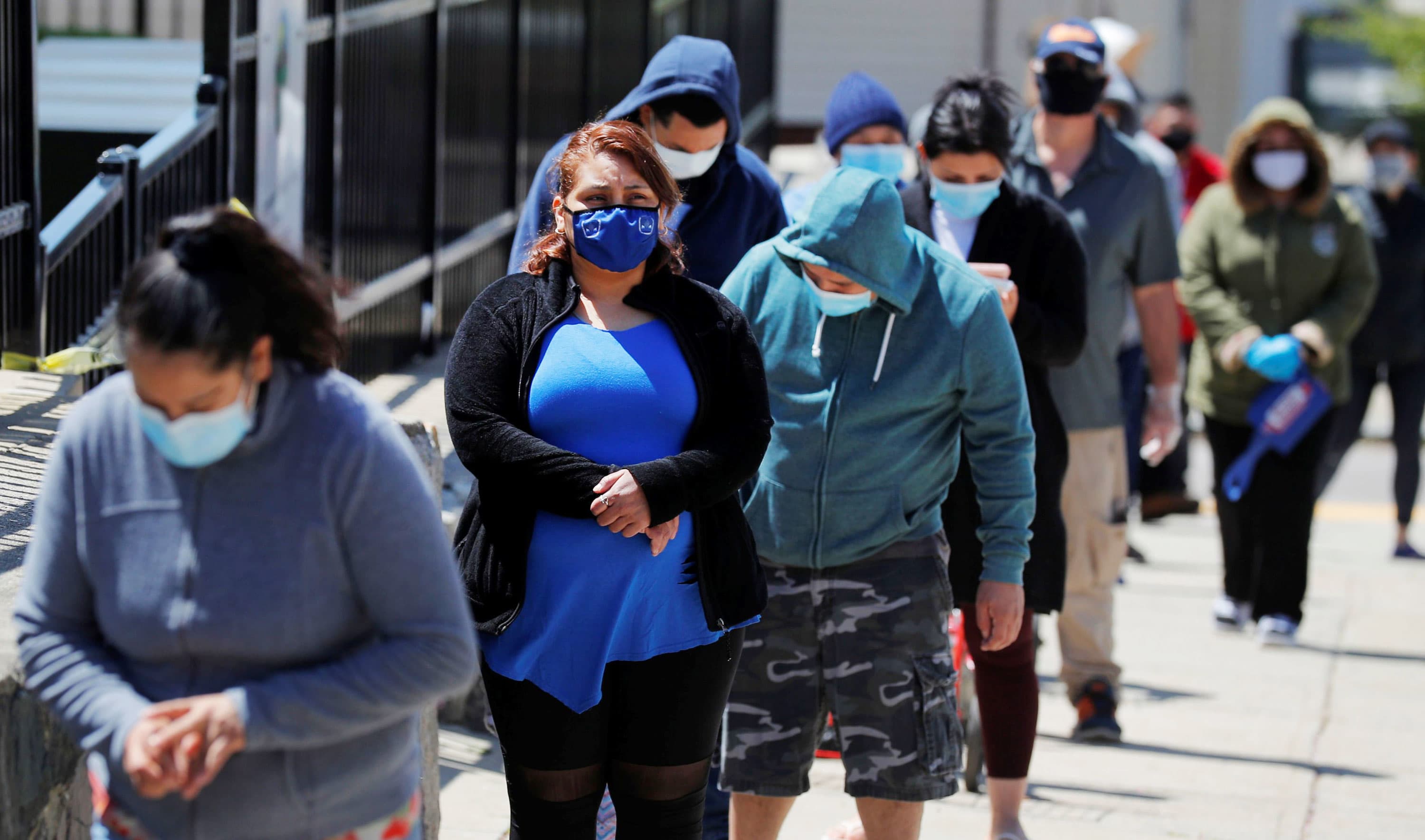
Residents wait in line for free groceries from a pop-up food pantry amid the coronavirus disease (COVID-19) outbreak in Chelsea, Massachusetts, May 19, 2020.
Brian Snyder | Reuters
The historic job losses suffered around the world are disproportionately affecting women, Citi said in a new research report. On top of being an inequality issue, there are real economic consequences.
The firm said that 44 million people globally, excluding China, could wind up losing their job in the six sectors most impacted by the coronavirus-induced slowdown. Citi believes that around 31 million of those people will be women, compared with 13 million men.
“The loss of 31 million equates to a decline in global GDP of ~$1 trillion,” the firm said. “This represents 1.2 percentage points of the 3.2 percentage point drop in GDP we’re expecting for 2020.”
Part of the disparity stems from the fact that women are more represented in industries that are the most vulnerable to job losses stemming from the pandemic. This includes areas like retail, leisure and hospitality, as well as education and health. Citi said that women in the Americas and Europe are at greatest risk.
Looking at jobless claims data in the U.S. between March and April, when a net 21.3 million jobs were lost, Citi said that 11.7 million of filers were women, while 9.6 million were men.
“In other words, 15 percent of female employees who were employed as of January this year lost their jobs,” the firm said, adding that the data was starker at the industry level.
Since Covid-19 was declared a pandemic, nearly 41 million people in the U.S. have filed for unemployment. Last week first-time filers totaled 2.1 million, which was the lowest number since the crisis began, but is still high by historical standards. Continuing claims, or those who have been filing for at least two weeks, dropped 3.86 million week-over-week to 21.05 million.
While this indicates that the outlook is beginning to improve, Citi said that once the pandemic abates women will likely face additional challenges when seeking re-employment given the typically larger share of child and family care that they undertake.
Since women in the work force are a key generator of global growth, the firm said that looking forward decision makers need to factor this into policy responses.
“Covid-19 may erode many positive gains towards closing gender gaps and the potential for women to be sources of significant global growth generation,” Citi said. “In order to mitigate those losses, decision-makers must take women into account in policies intended to address Covid-19 economic disruptions.”
– CNBC’s Michael Bloom and Jeff Cox contributed reporting.
Subscribe to CNBC PRO for exclusive insights and analysis, and live business day programming from around the world.


